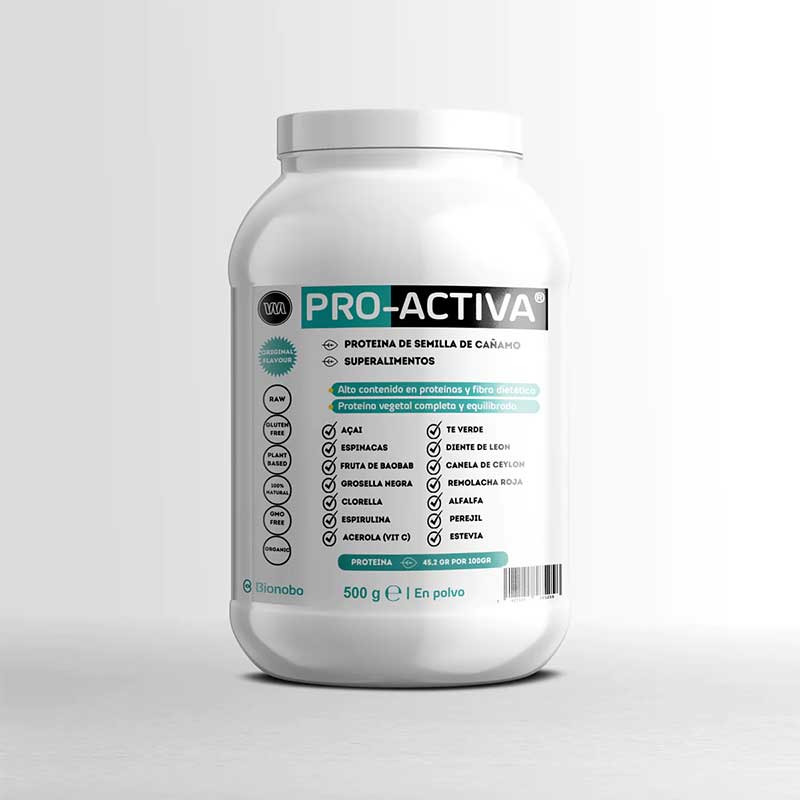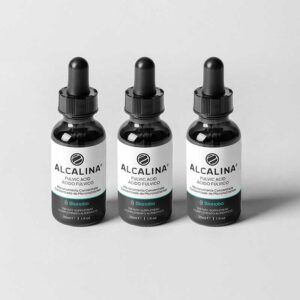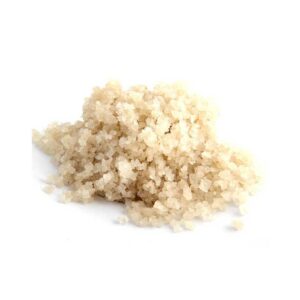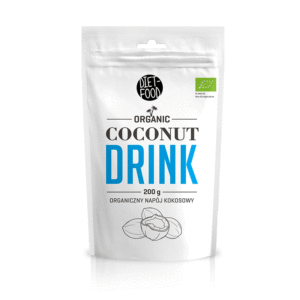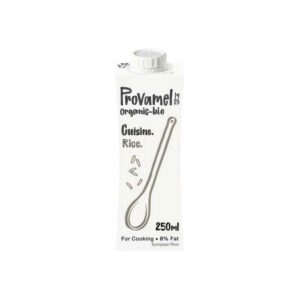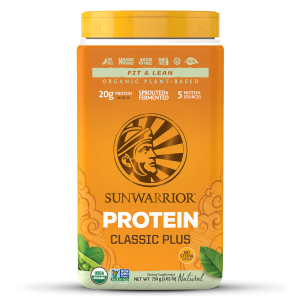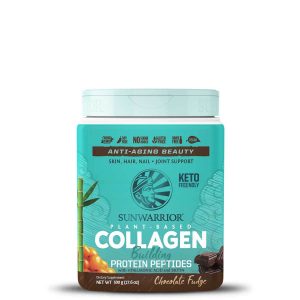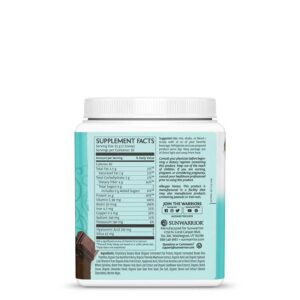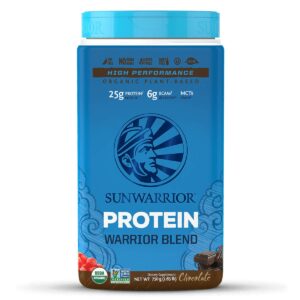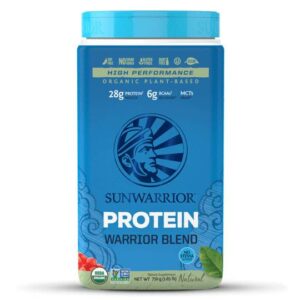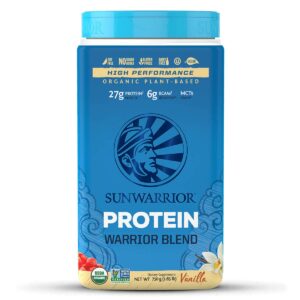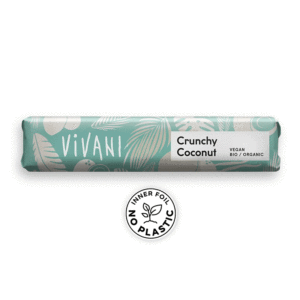Bionobo – PRO-Activa Protein + Superfoods + Digestive Enzymes 500gr
PRO-ACTIVA® protein powder provides a complete, balanced and natural protein from hemp seed, as well as a range of phyto-nutrients from nutritious superfoods and herbs. It is also high in dietary fibre, which is beneficial for colon health and stable blood sugar levels. It is better than single-ingredient protein powders.
Protein: Bionobo protein is a vegetable protein from hemp seed, providing 45.2g per 100g. Hemp seed provides complete vegetable protein (all essential amino acids), making it an excellent alternative to animal protein.
It is easily digestible and does not cause bloating or flatulence, something many people experience with dairy protein powders – an ideal alternative to whey and soy.
Unlike many other hemp protein powders on the market, PRO-ACTIVA® does not contain hexane or other toxic chemicals, which are often used during the hemp protein extraction process. Our hemp protein is extracted using only water, pressure and then flocculation.
Hemp protein PLUS superfoods and herbs (phyto-nutrients)
In addition to the nutritious hemp protein, the formula also contains a number of superfoods and herbs.
Ingredients: Hemp Seed Protein Powder; Herbal Blend: (Alfalfa powder (Medicago sativa), Red beet powder, Ceylon cinnamon bark powder (Cinnamomum zeylanicum), Dandelion root powder, Green tea powder (Camellia Sinensis), Spirulina powder, Acerola cherry fruit extract (Malpighia glabra), Chlorella powder (Chlorella vulgaris), blackcurrant fruit extract (Ribes nigrum), parsley leaf powder (Petroselinum crispum), baobab fruit pulp (Adansonia digitata), spinach leaf powder (Spinacia oleracea l. ), Acai berry extract, fenugreek extract; sweetener: steviol glycosides (Stevia leaf extract).
Free from:
- Gluten
- Sugar
- Dairy
- Lactose
- hexane
Information on ingredients
Hemp seeds: Hemp contains all the essential amino acids and essential fatty acids (EFAs, such as Omega 3) needed to maintain health and improve immune function. Hemp seeds also have antioxidant effects and a wide range of vitamins and minerals (such as vitamin E, magnesium, phosphorus, potassium, niacin, riboflavin, thiamin, vitamin B6 and folate).
Together, these characteristics make hemp a superfood, as well as a Nobloating.
No other plant source provides complete protein nutrition in such an easily digestible form, nor does it have the essential oils for life in such perfect proportion for human health and vitality.
Hemp protein is very similar to human blood plasma protein, which is what makes it so easy to digest (unlike other protein sources that have been associated with bloating and intestinal discomfort).
Alfalfa: Alfalfa is rich in chlorophyll, vitamins (such as provitamin A (B-carotene) and vitamins B6, C, D, E, K and P) and minerals (such as calcium, magnesium, potassium, iron and zinc). It also contains all 8 essential amino acids (the building blocks of protein), provides 10 times more mineral value than an average grain and contains 8 essential enzymes, including:
- amylase (digests starch)
- coagulase (coagulates milk)
- invertase (converts sugar into dextrose)
- emulsin (acts on sugars)
- peroxidase (oxidises blood)
- lipase (enzyme that splits fat)
- pectinase (forms a vegetable jelly from pectin)
- protease (digests proteins).
Alfalfa also contains medicinal “actives” such as isoflavones, sterols and other plant phytoestrogens which, together with the plant’s natural fibre, promote healthy cholesterol levels.
Red beetroot: Beetroot is a good source of carbohydrates and protein, and is also rich in various vitamins (such as vitamins A, B and C), minerals (such as magnesium, manganese, sodium, potassium, calcium and phosphorus), antioxidants (such as betanin, the pigment that gives beetroot its colour) and other nutrients, such as soluble fibre, iron, folic acid and betaine.
It has a very low calorific value, is almost completely fat-free and has a low glycaemic load. It is also extraordinarily rich in dietary nitrate, which makes it popular with athletes. This nutrient causes a reduction in oxygen consumption, which increases endurance and makes exercise less strenuous. Studies have shown the positive effects beetroot can have on exercise performance and muscle growth.
For example, in the famous study conducted by the University of Exeter, scientists found that cyclists who drank half a litre of beetroot juice several hours before setting off could cycle up to 16% longer than those who drank a placebo blackcurrant juice. This is why many athletes use it at times of extreme training, when the demand for energy and recovery is high.
Cinnamon bark: Cinnamon has antispasmodic, antimicrobial, carminative, antidiarrhoeal, antiparasitic and antiseptic properties. The bark helps to counteract flatulence and diarrhoea. It is also used for a weak digestive system, vomiting, hyperacidity, to promote the secretion of gastric juices, irritable bowel, summer diarrhoea, colds and flu. It can help suppress the growth of numerous harmful microorganisms, such as Escherichia coli, Staphylococcus aureus and Candida albicans. Cinnamon also helps to keep blood sugar levels stable, making it very useful for diabetics.
Dandelion root: Dandelion has been a staple of traditional herbal pharmacopoeia for centuries. In Europe, dandelion is still respected as the nutritional and medicinal powerhouse that it is. Among other things, dandelion root has been used as a mild laxative, digestive aid, to treat liver and kidney problems, to relieve inflammation, boils, fever and diarrhoea and to help regulate blood sugar levels. Dandelion root is also known to stimulate appetite.
Green tea: Green tea is rich in catechin polyphenols. Epigallocatechin gallate (EGCG), in particular, is a potent antioxidant. Studies have shown that green tea polyphenols have a more potent antioxidant action than vitamin C and vitamin E, two of the most potent antioxidants found in nature. Green tea is effective in lowering LDL cholesterol and blood pressure levels and inhibiting abnormal blood clot formation. Green tea is also known to be beneficial for weight loss, as the polyphenols induce thermogenesis and stimulate fat oxidation, increasing metabolic rate without increasing heart rate.
Spirulina: Spirulina is a highly nutritious blue-green algae. It is a complete food that provides an incredibly wide range of nutrients, including protein, vitamins, minerals, omega-6 fatty acids, chlorophyll and other phyto-nutrients.
It is used to:
- boost the immune system
- improve digestion
- reduce fatigue and increase stamina
- cleanse and detoxify
- increase energy levels
Acerola: These cherries are known as a superfruit for their exceptional nutritional values and their naturally high levels of bioavailable (easily absorbed) vitamin C – 30 times the amount found in oranges of the same weight. They also represent a good source of vitamin and antioxidant power: researchers have identified almost 150 nutritional components in Acerola cherries, including bioflavonoids, proteins, mineral salts, iron, calcium and phosphorus.
Chlorella: Chlorella is a powerful detoxification aid, which has been shown to bind heavy metals and pesticides – such as PCBs – that can build up in our bodies. It is also a fibrous material, which means it supports healthy digestion and the overall health of the digestive tract. A clean bloodstream, with plenty of red blood cells to carry oxygen, is essential for strong natural defences.
Chlorella’s high nutrient content, its cleansing action on the intestine and other organs of elimination, as well as its protection of the liver, help keep the blood free of impurities and our immune system strong. Chlorella gets its name from the large amount of chlorophyll it contains.
Blackcurrants: These berries have a number of beneficial phyto-nutrients. In fact, during World War II, blackcurrants were used as a substitute for oranges and other vitamin C-rich fruits, as they were hard to come by in the UK.
Blackcurrants are an extraordinarily rich fruit in vitamin C and far superior to navel oranges, containing more than three times the amount. It also contains a good amount of calcium, potassium, phosphorous, iron and vitamin E. Blackcurrants are a great food for maintaining energy levels and the seeds are rich in unsaturated fatty acids. They are also packed with antioxidants (anthocyanins, a type of polyphenol).
Parsley leaf: A highly nutritious member of the Umbelliferae family, parsley has many health benefits and a wealth of nutrients, including vitamins A, C and E, bioflavonoids, iron, folic acid, volatile oils, coumarins, flavonoids, chlorophyll and other potent antioxidants and phyto-nutrients.
Parsley contains more vitamin C than any other culinary vegetable, i.e. about three times more than that found in an orange and about the same amount as blackcurrants. Its iron content is high (about twice that of spinach). It is also
It is also a good source of manganese, calcium and potassium.
Raw parsley and its juice are used to cleanse the blood, dissolve sticky deposits in veins, help maintain the elasticity of blood vessels, help break up small kidney stones and gallstones, and as a natural breath freshener and diuretic.
Baobab fruit: Africans across the continent have long used this versatile fruit for its health applications. It is also famous for its incredible nutritional properties. Like moringa, it is a superfood worthy of the name. It is an excellent source of many vitamins and minerals, and it has
- x5 more magnesium than avocados
- x4 more potassium than bananas
- x2 more calcium than milk
- x2 more antioxidants than acai berries
- x10 more vitamin C than oranges
- x10 more fibre of apples.
In other words, baobab is highly nutritious, with the various parts of the plant providing varying amounts of protein, vitamin C, antioxidants, potassium, magnesium, iron, zinc, calcium and B vitamins.
Due to its high dietary fibre content, it has been shown to support digestive health and reduce feelings of hunger, which may promote weight loss. Baobab may also help to slow the rise in blood sugar levels and decrease the amount of insulin needed to keep blood sugar under control.
Studies show that baobab may help reduce inflammation and prevent oxidative damage to cells.
Spinach: Spinach tops many superfood lists because it is loaded with iron, calcium, folic acid, vitamin K, vitamin C, fibre and carotenoids. Add lutein and bioflavonoids, and spinach is a nutritional powerhouse. The calcium content of spinach helps strengthen bones; vitamins A and C, fibre, folic acid, magnesium and other nutrients help fight disease and boost the immune system. Folate also reduces blood levels of homocysteine – a protein that damages arteries – and therefore helps protect against heart disease.
Acai berry: These berries, found only in the Amazon rainforests of Central and South America, contain a wide range of vitamins, minerals, essential fatty acids and antioxidants. Acai berries are beneficial to:
- the immune system: their dark purple pigment contains plant chemicals called anthocyanins, powerful antioxidants that are part of the flavonoid family and are important for neutralising damaging free radicals.)
- heart support: acai berries are a rich source of protein and dietary fibre, which are thought to have a protective effect on the cardiovascular system
- lower cholesterol levels: acai berries are a rich source of Omega 6 and Omega 9 fatty acids, as well as phytosterols, which play an important role in lowering blood cholesterol levels.
- weight loss: these berries can provide valuable nutrients to support energy levels, the immune system and nutrient intake during periods of reduced calories and increased physical activity.
They also have antibacterial, anti-inflammatory and antimutagenic properties.
Fenugreek: Fenugreek is loaded with antioxidants and has laxative and anti-parasitic effects. It also soothes irritated tissues, reduces fever, lowers blood sugar, improves digestion and promotes healing. It stimulates the immune system and helps to eliminate toxins from the body through the lymph nodes. The seeds, in particular, are rich in lipids, proteins, protease inhibitors, alkaloids, mucilaginous fibre, phosphorus, iron, calcium, niacin, vitamin C, selenium and other nutrients. In addition, the seeds are believed to reduce fatty tissues, thus aiding natural weight loss.
This powder can be used as part of a protein-rich vegan diet plan.
Directions for use:
For best results, add 3/4 of a scoop or 3 heaped teaspoons (30g) into a glass or blender. Mix with water, fruit and vegetable juices, coconut milk, etc. to make a smoothie. Can also be added to yoghurt, cereals.
NUTIRITIONAL INFORMATION
| per 100g | per 30gr portion | |
| Energy | 1532kJ / 366kcal | 460kJ / 110kcal |
| Fat | 8.0g | 2.4g |
| of which Saturates | 1.0g | 0.3g |
| Carbohydrates | 20.3g | 6.1g |
| of which Sugars | 3.2g | 1g |
| Fibre | 16.2g | 4.9g |
| Protein | 45.2g | 13.6g |
| Salt | 0g | 0g |


